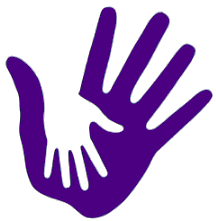- Winchester Public Schools
- Social and Emotional Supports/Mental Well-Being
Rhodes Alternative Program
Page Navigation
Social and Emotional Supports/Mental Well-Being
-
 At The Rhodes Center, staff is focused on students' social, emotional, and mental well-being, in addition to their academic success. Many students find it difficult to reach their full academic potential due to outside influences that impact their learning. While enrolled at Rhodes, students will actively participate in group reflection sessions, individual consultation, SEL skill building, and/or restorative practices. The goal of this component of the program is to allow students to bolster their interpersonal skills and learn ways to maintain control of their emotions in the face of adversity.The Collaborative for Academic, Social, and Emotional Learning (CASEL) focuses on five key competencies. Staff at The Rhodes Center will use CASEL's model as a foundation for social and emotional education. These five competencies are Self-Awareness, Self-Management, Social Awareness, Relationship Skills, and Responsible Decision-Making.
At The Rhodes Center, staff is focused on students' social, emotional, and mental well-being, in addition to their academic success. Many students find it difficult to reach their full academic potential due to outside influences that impact their learning. While enrolled at Rhodes, students will actively participate in group reflection sessions, individual consultation, SEL skill building, and/or restorative practices. The goal of this component of the program is to allow students to bolster their interpersonal skills and learn ways to maintain control of their emotions in the face of adversity.The Collaborative for Academic, Social, and Emotional Learning (CASEL) focuses on five key competencies. Staff at The Rhodes Center will use CASEL's model as a foundation for social and emotional education. These five competencies are Self-Awareness, Self-Management, Social Awareness, Relationship Skills, and Responsible Decision-Making.
-
SELF-AWARENESS
The ability to accurately recognize one’s own emotions, thoughts, and values and how they influence behavior. The ability to accurately assess one’s strengths and limitations, with a well-grounded sense of confidence, optimism, and a “growth mindset.”SELF-MANAGEMENT
The ability to successfully regulate one’s emotions, thoughts, and behaviors in different situations — effectively managing stress, controlling impulses, and motivating oneself. The ability to set and work toward personal and academic goals.SOCIAL AWARENESS
The ability to take the perspective of and empathize with others, including those from diverse backgrounds and cultures. The ability to understand social and ethical norms for behavior and to recognize family, school, and community resources and supports.RELATIONSHIP SKILLS
The ability to establish and maintain healthy and rewarding relationships with diverse individuals and groups. The ability to communicate clearly, listen well, cooperate with others, resist inappropriate social pressure, negotiate conflict constructively, and seek and offer help when needed.RESPONSIBLE DECISION-MAKING
The ability to make constructive choices about personal behavior and social interactions based on ethical standards, safety concerns, and social norms. The realistic evaluation of consequences of various actions, and a consideration of the well-being of oneself and others.



